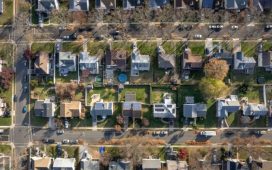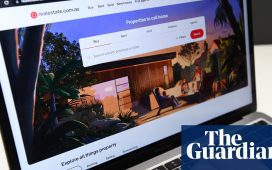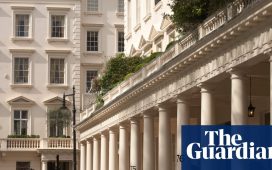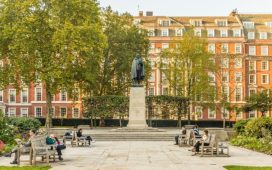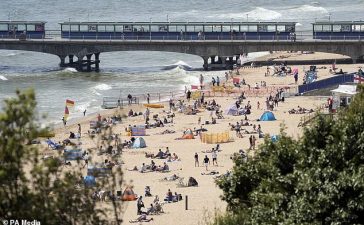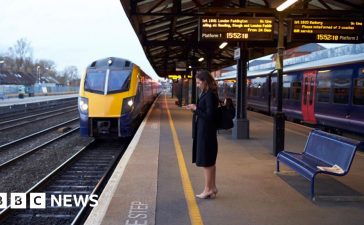UK house prices fell more than expected between December and January and for a fifth consecutive month, marking the longest decline since the 2008-09 financial crisis, as higher mortgage rates hit prospective buyers.
Property prices dropped 0.6 per cent between December and January, mortgage provider Nationwide said on Wednesday, worse than the 0.3 per cent fall forecast by economists in a Reuters poll.
The average price of a house in the UK declined for the fifth time since September last year to £258,297, down from a peak of about £274,000 in August. Such a prolonged decrease has not been registered for 14 years.
Gabriella Dickens, senior UK economist at the consultancy Pantheon Macroeconomics, said Wednesday’s data showed house prices were “continuing to buckle under the pressure of elevated mortgage rates, squeezed real incomes and weak consumers’ confidence”.
The annual rate of house price growth also declined, dropping from 2.8 per cent in December to 1.1 per cent in January, the lowest level since June 2020 and below economists’ expectations.

Robert Gardner, Nationwide’s chief economist, said it would “be hard for the market to regain much momentum in the near term” as real earnings are forecast to decline further and the labour market is widely projected to weaken as the economy shrinks.
He added that the biggest change for prospective buyers over the past year had been the rise in the cost of servicing the typical mortgage, as a result of the increase in mortgage rates.
The Bank of England on Tuesday said the average mortgage rate for new loans rose to 3.67 per cent in December, the highest in a decade. Mortgage rates follow medium-term expectations of the BoE’s policy on interest rates, which it has lifted in a push to tame high inflation.
Bank data also showed that, in December, mortgage approvals fell to their lowest level since January 2009, excluding at the height of the Covid-19 pandemic.
Markets expect the BoE’s Monetary Policy Committee to raise interest rates by another 50 basis points to 4 per cent when it meets on Thursday, up from 0.1 per cent until November 2021.
The fall in house prices since August is reversing some of the exceptional property price expansion that occurred after the onset of the pandemic.
Between February 2020, before the first lockdown, and August 2022, the average house price rose by about £58,000, or roughly 27 per cent, fuelled by record-low interest rates and a “race for more space” among buyers.
Many economists say the market will not experience a revival until properties and mortgage payments become more affordable.
“Many potential buyers also will wait until prices have fallen substantially,” said Dickens.
James Sproule, UK chief economist at Handelsbanken, said he forecast a fall in house prices of 8 per cent in the current downturn, with the volume of sales dropping by as much as 60 per cent from its 2020 peak.
He said he expected house prices to become more affordable by 2024, “spurring the market recovery as consumers realise interest rates have peaked and further house price declines are less likely”.

